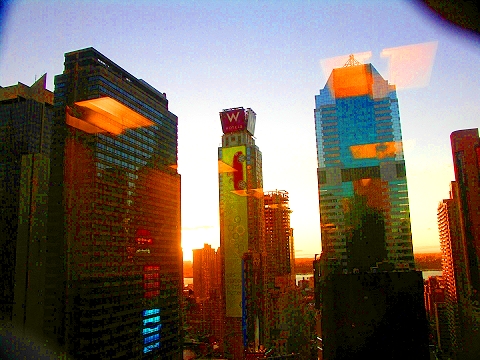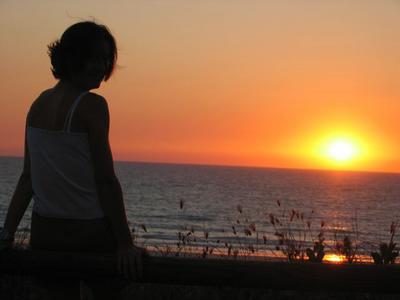Since the very beginning, I found it hard to write haiku in my mother tongue. Just can't tell you why, since I am not native English speaker. English is my third language, after Javanese and Indonesian. Japanese? Oh, no... never been in Japan, never speak the language.
I learn about and read Baso, Issa, Akutagawa and other Japanese haiku masters in English. I also learn from reading Rotella, Ross, Clausen, Reichgold and others in English.
However, one thing is certain; English makes it easier for me to convey my messages on two haiku basic principles; simplicity and depth. Yea, I admit that I don't stick to its traditional metrical pattern so that you won't always find 5-7-5-syllable verses in my works. I am not overvaluing my works, but in my subjective opinion, English helps me during the writing. It also helps me in translating the work of others.
Here, you may find the original works of Chandra Prijosusilo in Indonesian. She wrote it as the haiku moment touched her in Manhattan. I was not there, surely. But I tried to feel the moment by projecting the imagery to my mind, as she described the situation very briefly. My translation in italic.

(1)
Rembulan setengah lingkaran
Tersenyum lembut terangi malam
Menjuntai dari surga...
Mencium sudut gedung kaca
halfmoon
shines on window glass
heavenly kiss
(2)
Matahari terbit dari puncak gedung
dan bersama siang merayap turun
menuju tanah di Manhattan.
sunset from the rooftop
touches the ground and dies
down in Manhattan
Geuceu, Bandar Raya, May 25, 2009










